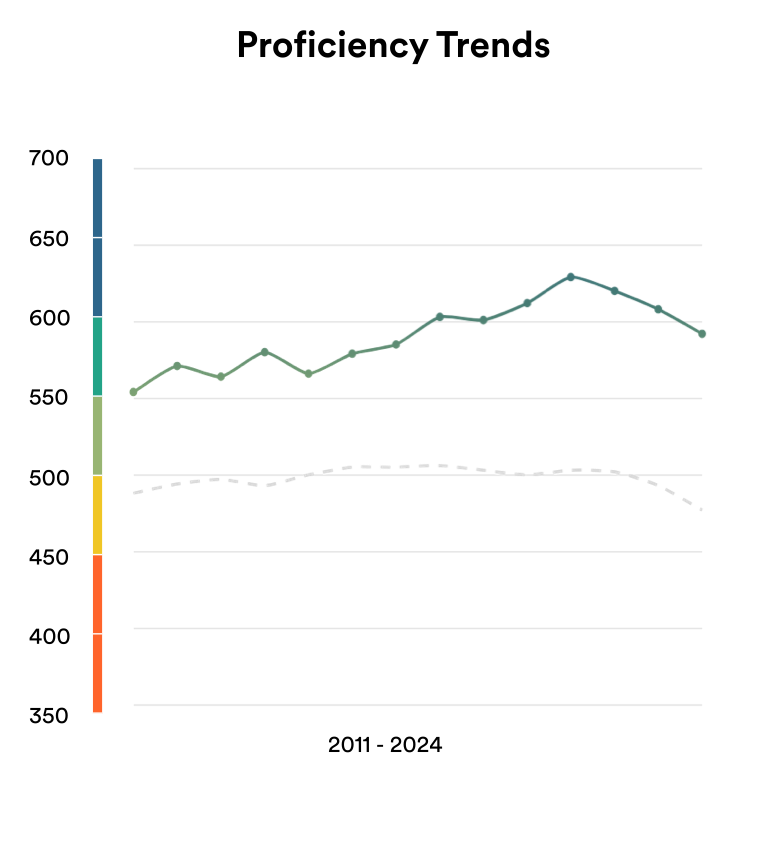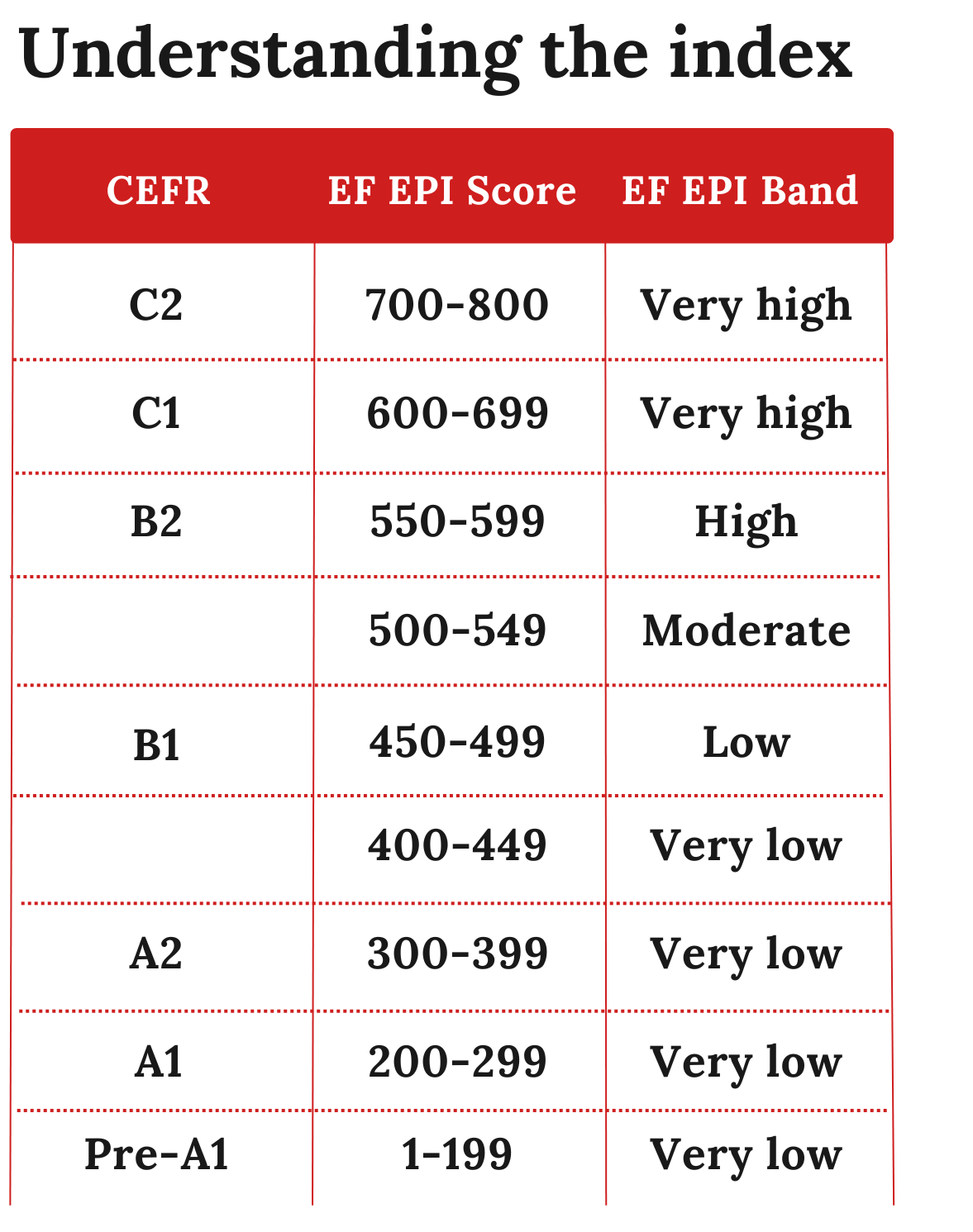Belgium's proficiency in English has continued to decline, pushing the country out of the European and global top ten for best non-native English speakers. The country's score is dragged down by Wallonia.
Belgium also used to be ranked among the ten European nations with the best command of the English language, but in this list too it has dropped from sixth to 11th place.
Despite being the capital of Europe and with one third of the population being non-Belgian, Belgium is not among the best when it comes to knowledge of English. It dropped out of the top ten countries in the world with a 'very good command of English' in the English Proficiency Index 2024 published by Education First (EF), slumping from seventh to 13th place.

The evolution in Belgium's English proficiency. Credit: EF
The scores refer to language proficiency in line with the Common European Framework of Reference for Languages (CEFR), which ranges from A1 for limited knowledge to C2, mother tongue level.
The index assesses the average English skills of 116 countries, regions and capitals around the world based on the test results from three different versions of the EF online exams of 2.1 million adults. The Netherlands remains the undisputed leader with 636 points, followed by Norway (610 points) and Singapore (609 points).
In Belgium, the scores show knowledge of English is highest among 26- to 30-year-olds. People in this age group have an average score of 643 out of 800. This equates to a C1 level. Men in Belgium score slightly higher on average than women (594 points compared to 590, respectively).

Credit: EF / The Brussels Times
Regional disparities
Belgium's national score hides stark differences between the country's three regions. Despite Belgium's average score falling to 592 points (-16), the level of English in Dutch-speaking Flanders is among the highest in the world. With an impressive score of 653 points, this signifies the region's 'very high English proficiency'.
Flanders is losing ground, however, with its score falling by seven points compared to 2023. Both the best-performing province (Antwerp with 675 points) and city (Leuven with 658 points) are located in Flanders.
In Wallonia, the score is significantly lower: 526 points (-5), equating to 'moderate proficiency'. The score puts the French-speaking region in line with places in France, Spain, Armenia and Costa Rica. Countries which scored below 500 get a failing grade.
Related News
- Growing number of international students at VUB in Brussels
- Future Flemish Government considers curbing internationalisation of universities
- Rue de la Loi, Wetstraat, Law Street? English may become Brussels' third official language
All Flemish provinces have scores that fall in the 'very high proficiency' category, while in Wallonia, all provinces have moderate scores. Hainaut fares best and has improved its score (from 536 to 541 points), while the province of Luxembourg (508) is in last place, with a drop of 25 points.
Experts have pointed to media as one reason for this difference: television in Wallonia is dubbed, while Flemish people are more exposed to English. However, education is also key, with the Dutch-speaking school system putting more emphasis on English in its curriculum.
The multilingual Belgian capital, meanwhile, fell short of making it into the top 20 capital cities worldwide. In 27th place and with 569 points, Brussels scored significantly lower than almost all its neighbouring capital cities (Amsterdam, Berlin and Paris).
'Worrying' slowdown
Belgium's most recent drop in the ranking marks the third year in a row of a decrease in performance. In 2021, it scored 629 points, placing it among the best in the world. Since then, it has fallen by 37 points.
Proficiency is declining most significantly among young people. The language skills of the 18-20 age group dropped from 601 points in 2021 to 574 points in 2023 (-27). The organisation points to the Covid-19 pandemic as the leading cause of this, as it "disrupted teaching methods and reduced opportunities for language immersion, essential factors in language learning."
This trend is in line with a "worrying" slowdown in the command of the English language seen across the world, EF noted. "While worldwide there are many more people who understand some English now than there were 30 years ago, the global level of English proficiency has declined for the fourth year running, with 60% of countries in the index scoring lower this year than last."
It concluded that this indicates a loss of interest in developing English proficiency beyond current levels in many parts of the world.

